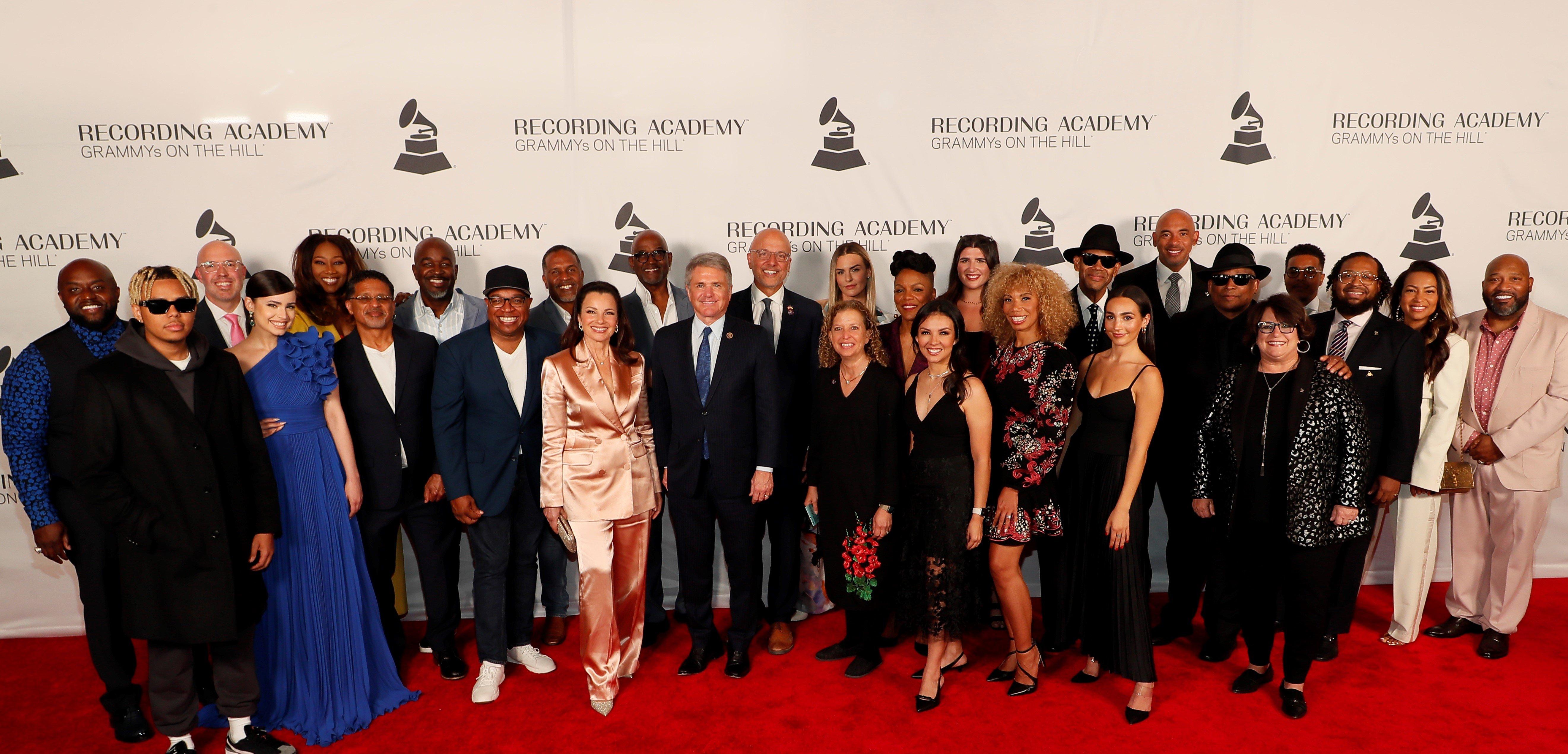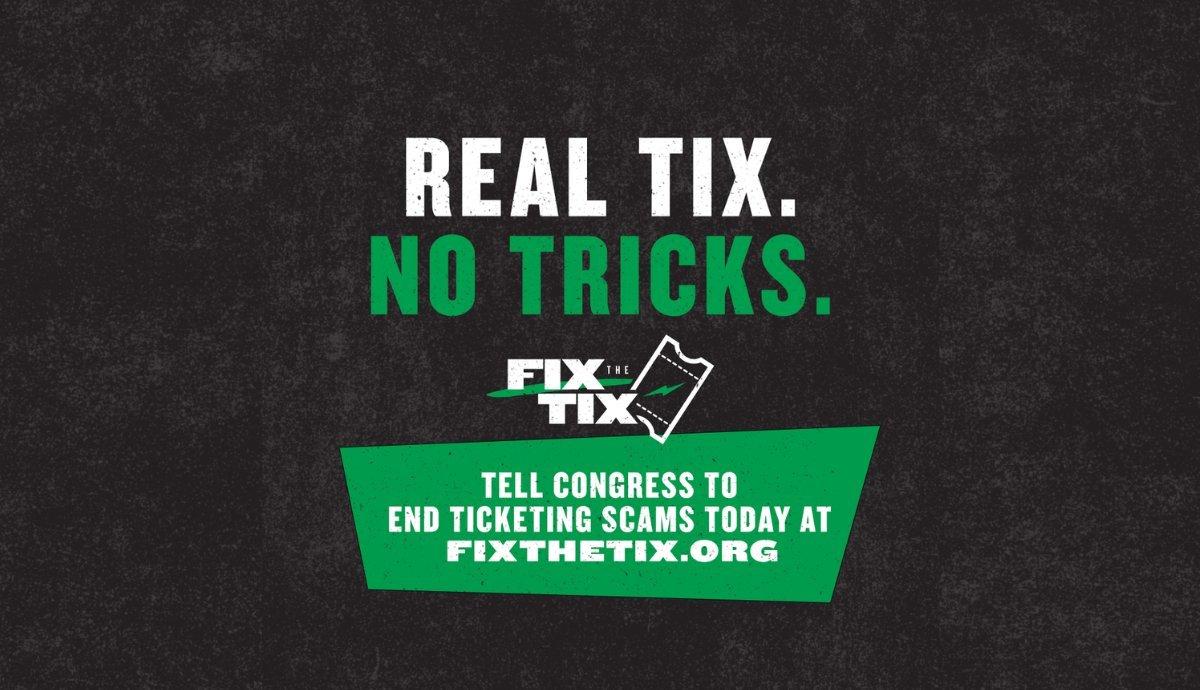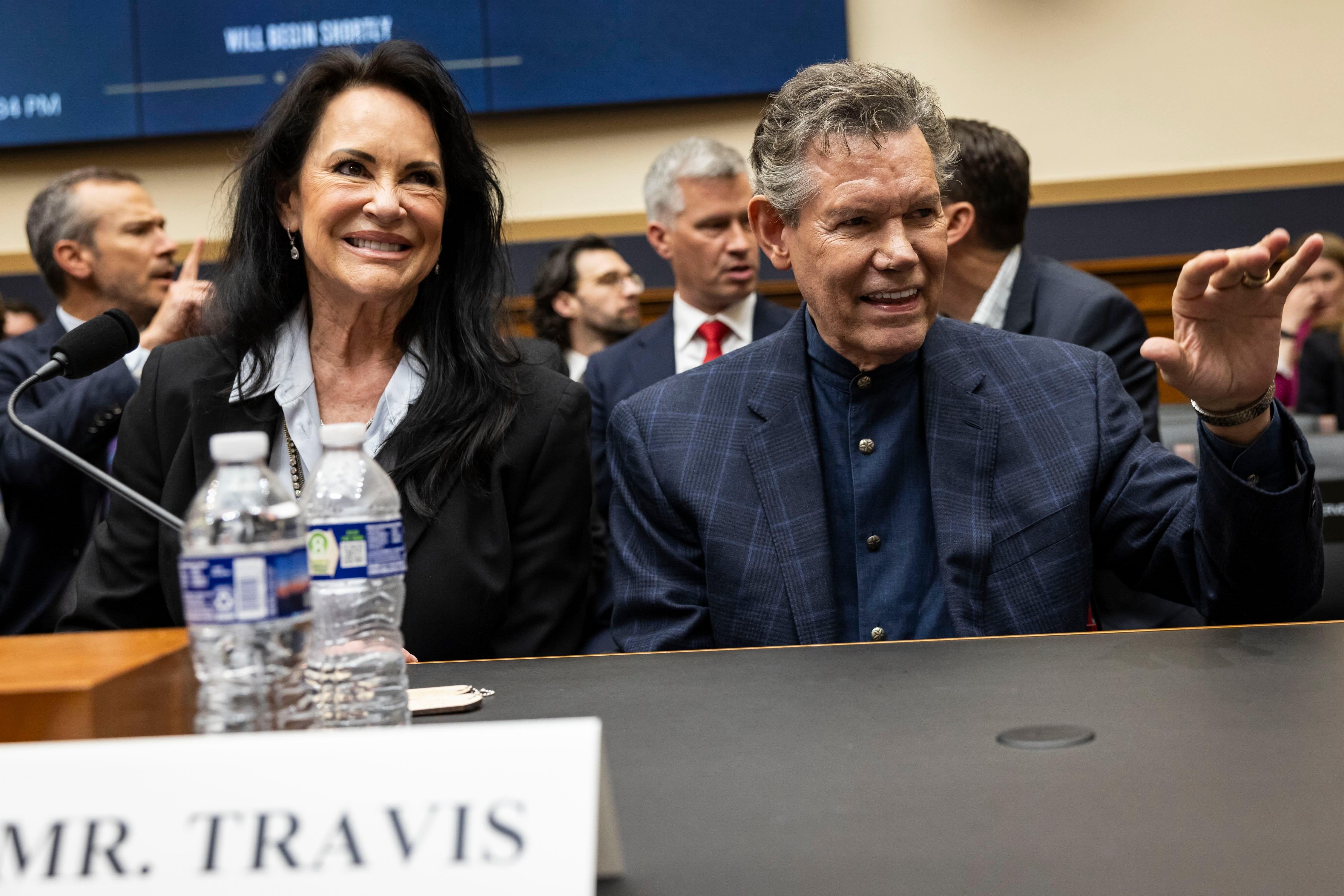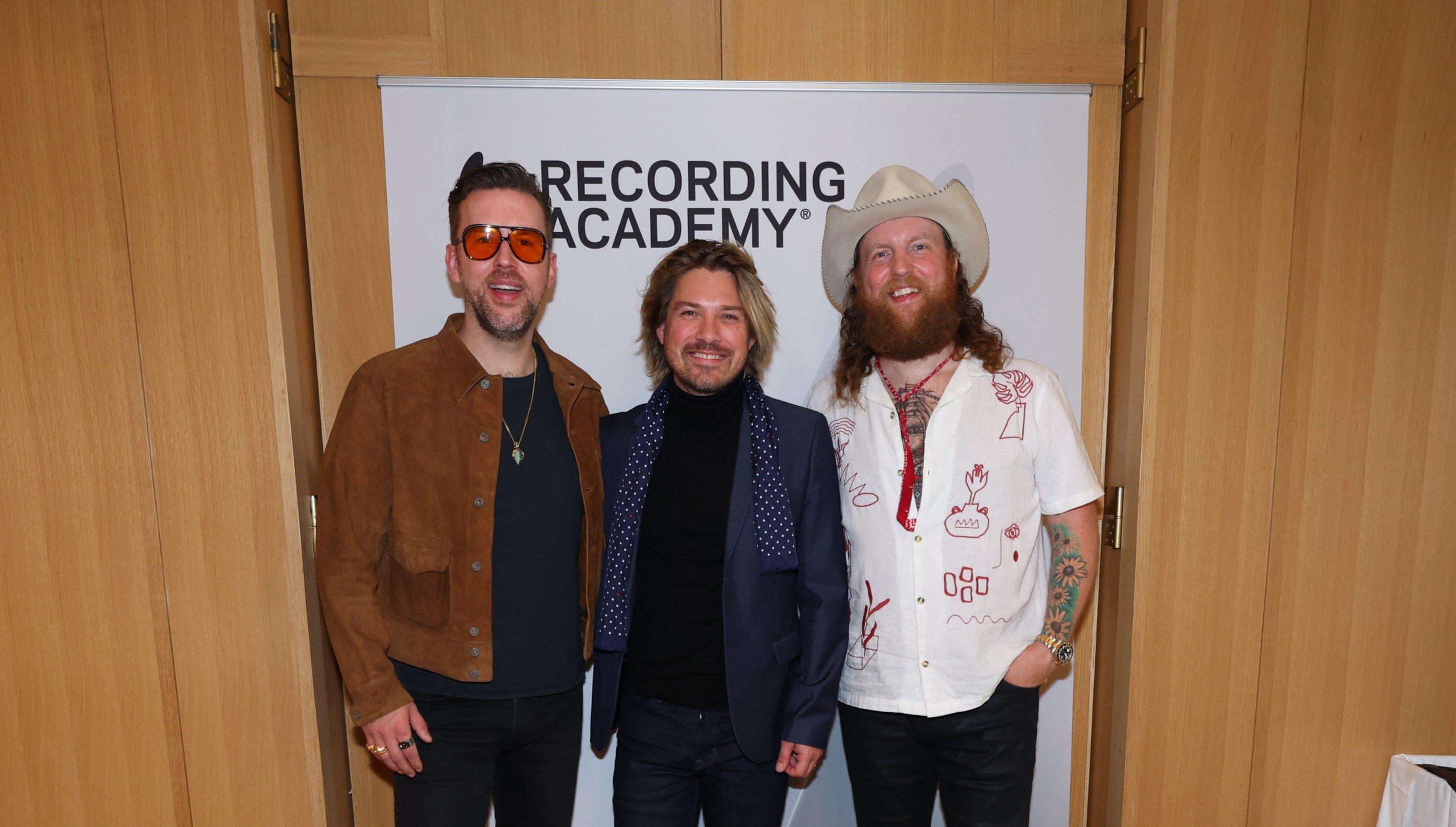The Recording Academy's Annual GRAMMYs on the Hill Awards and Advocacy Day will be returning to Washington D.C. on Apr. 26-27, 2023 to honor those who have gone above and beyond in their support of the music community.
This year, the Recording Academy will be honoring 13-time GRAMMY Winner Pharrell Williams, Senate Majority Leader Chuck Schumer and Senator Bill Cassidy, M.D., for their advocacy and support of music makers.
With this year's GRAMMYs on the Hill fast approaching, here is everything you need to know about Washington D.C.'s biggest night in music and the important advocacy day that follows:
What Is GRAMMYs On The Hill?
GRAMMYs on the Hill is a two-day event consisting of the GRAMMYs on the Hill Awards and subsequent Advocacy Day.
Over the course of these events, music creators come together with Members of Congress to celebrate those who have been exceptional in their support of creator's rights and to advocate for the passage of legislation that will further improve those rights.
At the Awards, the Recording Academy honors an individual or group from the music industry who has used their reach to advocate for, and take positive action in support of, advancing creator's rights. These honorees have gone above and beyond fighting for their peers.
Additionally, the Recording Academy honors two elected officials who have been leaders in advancing creator's rights by supporting legislation and passing policy that benefits music creators.
During GRAMMYs on the Hill Advocacy Day, the Recording Academy brings recent GRAMMY winners and nominees to Capitol Hill to meet with Members of Congress and their staff.
Throughout the day, these artists utilize meeting time to tell their stories and urge congressional offices to take action on key issues facing the music community.
Who Are Some Past GRAMMYs On The Hill Honorees?
GRAMMYs On The Hill has been a going concern for more than 20 years. Here are some of the past honorees:
Five-time GRAMMY-winning duo Jimmy Jam & Terry Lewis
Four-time GRAMMY Winner Yolanda Adams
Two-time GRAMMY winner Garth Brooks
15-time GRAMMY winner Alicia Keys
Three-time GRAMMY winning group Zac Brown Band
Seven-time GRAMMY winner John Mayer
Four-time GRAMMY winner Missy Elliot
Four-time GRAMMY winner Keith Urban
Three-time GRAMMY winner Kelly Clarkson
Five-time GRAMMY winning group Lady A
Three-time GRAMMY winner Gloria Estefan
And, in the political realm:
Then-Vice President Joe Biden
Former Speaker of the House Nancy Pelosi (D-CA)
Current Speaker of the House Kevin McCarthy (R-CA)
Former United States Secretary of State Hillary Rodham Clinton
Current House Democratic Leader Hakeem Jeffries (D-NY)
Sen. Majority Whip Dick Durbin (D-IL)
Sen. Marsha Blackburn (R-TN)
Former Sen. Orrin Hatch (R-UT)
Former Sen. John McCain (R-AZ)
Who Do The GRAMMYs On The Hill Awards Benefit?
The GRAMMYs on the Hill Awards Dinner is a charitable event benefiting the GRAMMY Museum and sponsored by City National Bank.
What Has Advocacy Day Accomplished?
Music Modernization Act: In 2018, Rep. Bob Goodlatte brought the Music Modernization Act to the House floor during GRAMMYs On The Hill.
Throughout the Advocacy Day, our advocates met with congressional offices urging them to support this bill, which included provisions to improve compensation for songwriters, help pre-1972 legacy artists get paid by music streaming services, and recognize producers and engineers in music copyright protection.
In the months following GRAMMYs on the Hill, the bill was unanimously passed by the House and Senate. On Oct. 11, 2018, the historic bill known as the Orrin G. Hatch–Bob Goodlatte Music Modernization Act (aka Music Modernization Act) was signed into law.
PEACE Through Music Diplomacy Act: Last year, during the GRAMMYs on the Hill Advocacy Day, advocates urged Members of Congress to support the PEACE Through Music Diplomacy Act.
A bill designed to use music, and music-related global exchange programs, as a tool to build cross-cultural understanding and advance peace abroad, empower the State Department to leverage partnerships with the private sector when designing and implementing its music-related exchange programs, and authorize music-related exchanges that advance peace abroad.
However, at the time of the Advocacy Day, there was no version of the bill in the Senate — only the House. But just weeks after the Advocacy Day, Sens. Patrick Leahy and Thom Tillis introduced the PEACE Through Music Diplomacy Act into the Senate making it a bipartisan and bicameral bill.
Thanks to the Recording Academy's efforts during GRAMMYs on the Hill, and throughout all of 2022, the PEACE Through Music Diplomacy Act was signed into law on Dec. 23, 2022, as part of the annual National Defense Authorization Act.
The Recording Academy has already begun working with the State Department on implementing this bill to ensure the best outcome for the music community.
What Will The Recording Academy Be Advocating For At This Year's GRAMMYs On The Hill?
Although the Recording Academy will be covering more than just these issues at this year's GRAMMYs on the Hill Advocacy Day, here are a few that will be highlighted:
HITS Act: This bipartisan and bicameral bill, which the Recording Academy helped craft, would modify current U.S. tax law to allow independent artists and songwriters to deduct 100% of their production costs on new recordings or songwriter demos, up to $150,000, upfront rather than over a period of years. The goal of the HITS Act is to incentivize the creation of new music by lessening the financial burden and risk.
Freedom of expression: The Recording Academy has been spearheading an effort to protect the First Amendment rights of artists nationwide by working to put a strict limit to the use of an artist's lyrics, and other forms of creative expression, as evidence in criminal and civil proceedings.
Live event ticketing: In addition to supporting a Recording Academy member who testified at the recent Senate hearing on ticketing, the Recording Academy has been working to ensure that artists and their fans are the focus of any legislative effort to improve the concert ticket marketplace.
American Music Fairness Act: The passage of this bill would establish a performance right for sound recordings broadcasted by AM/FM radio. Currently, the United States, Iran, and North Korea are the only countries in the world that do not pay artists for their work on AM/FM radio. In turn, American artists do not receive any royalties when their music is played abroad in the many countries that do pay artists leading to an economic loss of approximately $200 million annually.
While the Recording Academy's Advocacy Team works year-round on these important issues, this year's Advocacy Day will be a memorable and effective extension of our efforts to pass meaningful legislation into law.
Stay tuned for ways that you can get involved at home during this year's GRAMMYs on the Hill!
AI And Copyright: How The Recording Academy Is Leading The Conversation To Protect Music Creators





